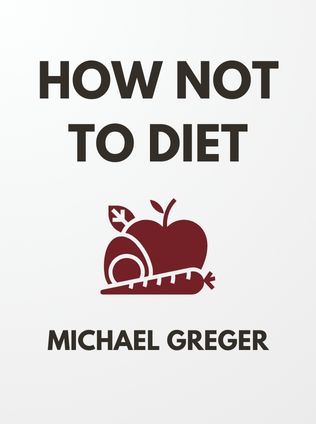
About the Author
Michael Greger, MD, is a distinguished physician, public health expert, and best-selling author renowned for his advocacy of evidence-based nutrition. He is the founder of NutritionFacts.org, a non-profit organization dedicated to providing the latest research on nutrition through videos, articles, and blogs. Dr. Greger's work is driven by a deep commitment to public health and a passion for debunking myths and misconceptions about diet and disease.
His previous book, "How Not to Die," became a massive success, cementing his reputation as a leading voice in the field of nutrition. In "How Not to Diet," Greger continues his mission to educate the public on how to achieve optimal health through diet, with a particular focus on weight management. Drawing on decades of research and thousands of scientific studies, Greger provides readers with a clear and actionable guide to losing weight healthily and sustainably.
Greger’s approach is holistic, emphasizing the importance of not just losing weight but improving overall health and longevity. His philosophy is rooted in the belief that food is medicine and that by making the right dietary choices, we can prevent and even reverse many chronic diseases.
Main Idea
"How Not to Diet" is more than just a weight loss book; it is a comprehensive guide to achieving and maintaining a healthy weight through informed dietary choices. Michael Greger argues that the key to successful weight loss lies in understanding the science behind our eating habits and the foods we consume. By focusing on a whole-food, plant-based diet, Greger shows how we can naturally regulate our weight without resorting to fad diets or extreme measures.
The book is structured around the idea that our modern diet, full of processed foods and animal products, is the primary driver of the obesity epidemic. Greger meticulously dissects the factors that lead to weight gain, from our biological predisposition to crave calorie-dense foods to the role of the food industry in promoting unhealthy eating habits. He then offers practical advice on how to counteract these influences by adopting a plant-based diet rich in fiber, nutrients, and water content.
Greger's approach is grounded in rigorous scientific research, yet it is also accessible and practical. He provides readers with actionable steps to incorporate more plant-based foods into their diet, along with strategies to enhance metabolism, reduce appetite, and ultimately achieve sustainable weight loss.
Table of Contents
- Introduction: The Weight of the Problem
- The Biology of Weight Gain
- The Food Industry's Role in Obesity
- The Benefits of a Plant-Based Diet
- Strategies for Effective Weight Loss
- Making the Transition to a Plant-Based Diet
- Conclusion: The Path to Long-Term Health
Introduction: The Weight of the Problem
The introduction of "How Not to Diet" sets the stage by discussing the global obesity epidemic and its dire consequences for public health. Greger highlights the fact that obesity is a major risk factor for a range of chronic diseases, including heart disease, diabetes, and cancer. He points out that despite the billions of dollars spent on weight loss products and programs each year, the rates of obesity continue to rise.
Greger argues that the root of the problem lies not in a lack of willpower or personal failure but in the environment we live in. Our modern food environment is flooded with calorie-dense, nutrient-poor foods that are designed to be addictive. These foods exploit our natural tendencies to seek out high-calorie foods, leading to overeating and weight gain.
He emphasizes that the solution to this problem is not found in crash diets or quick fixes but in a fundamental shift in how we approach food. Greger's mission is to empower readers with the knowledge they need to make healthier choices and take control of their weight and their health.
The Biology of Weight Gain
In this section, Greger delves into the biological mechanisms that drive weight gain. He explains that our bodies are hardwired to crave high-calorie foods because, for most of human history, food was scarce. This instinct served our ancestors well, helping them survive in times of famine. However, in today's world of abundance, it has become a liability.
Greger discusses the concept of "calorie density," which refers to the number of calories in a given weight of food. Foods that are high in fat and sugar are more calorie-dense, meaning they provide more energy per bite. Our bodies are naturally drawn to these foods because they offer the most efficient way to satisfy our energy needs. However, when these foods are consumed in excess, the excess calories are stored as fat.
Sign up for FREE and get access to 1,400+ books summaries.
You May Also Like
The Subtle Art of Not Giving a F*ck
A Counterintuitive Approach to Living a Good Life
By Mark MansonRich Dad Poor Dad
What the Rich Teach Their Kids About Money - That the Poor and Middle Class Do Not!
By Robert T. KiyosakiHow To Win Friends and Influence People
The All-Time Classic Manual Of People Skills
By Dale Carnegie



















